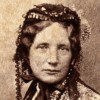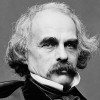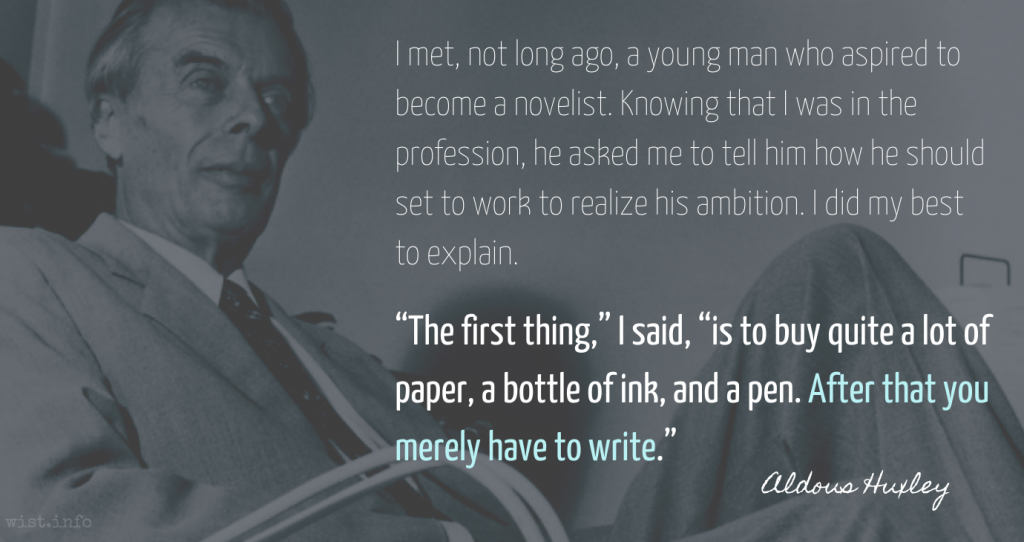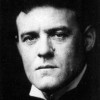Quotations about:
writing
Note not all quotations have been tagged, so Search may find additional quotes on this topic.
The original writer is not he who refrains from imitating others, but he who can be imitated by none.
[L’écrivain original n’est pas celui qui n’imite personne, mais celui que personne ne peut imiter.]
François-René de Chateaubriand (1768-1848) French writer, politican, diplomat
The Genius of Christianity [Le génie du Christianisme], Part 2, Book 1, ch. 3 (1802)
(Source)
Alternate translations:
- "The original style is not the style which never borrows of any one, but that which no other person is capable of reproducing." [tr. White (1856)]
- "An original writer is not one who imitates nobody, but one whom nobody can imitate."
Art is a jealous mistress, and, if a man have a genius for painting, poetry, music, architecture, or philosophy, he makes a bad husband and an ill provider.
Ralph Waldo Emerson (1803-1882) American essayist, lecturer, poet
“Wealth,” The Conduct of Life, ch. 3 (1860)
(Source)
Do not place a photograph of your favourite author on your desk, especially if the author is one of the famous ones who committed suicide.
Roddy Doyle (b. 1958) Irish novelist, dramatist, screenwriter
In “Ten Rules for Writing Fiction,” The Guardian (20 Feb 2010)
(Source)
And yet there is a degree to which […] all literature, highbrow or low, from the Aeneid onward, is fan fiction. […] Through parody and pastiche, allusion and homage, retelling and reimagining the stories that were told before us and that we have come of age loving — amateurs — we proceed, seeking out the blank places in the map that our favorite writers, in their greatness and negligence, have left for us, hoping to pass on to our own readers — should we be lucky enough to find any — some of the pleasure that we ourselves have taken in the stuff we love: to get in the game. All novels are sequels; influence is bliss.
Maintaining integrity as a private detective is difficult; to preserve it for the hundred thousand words of a book would be impossible for me, as it has been for so many others. Nothing corrupts a man so deeply as writing a book; the myriad temptations are overwhelming.
Perfect works are rare, because they must be produced at the happy moment when taste and genius unite; and this rare conjuncture, like that of certain planets, appears to occur only after the revolution of several cycles, and only lasts for an instant.
François-René de Chateaubriand (1768-1848) French writer, politican, diplomat
(Attributed)
(Source)
Quoted in James Wood, Dictionary of Quotations from Ancient and Modern, English and Foreign Sources (1893).
Writing is the only thing that passes the three tests of metier. first, when I’m doing it, I don’t feel that I should be doing something else; second, it produces a sense of accomplishment and, once in a while, pride; and third, it’s frightening.
If you can’t read and write you can’t think. Your thoughts are dispersed if you don’t know how to read and write. You’ve got to be able to look at your thoughts on paper and discover what a fool you were.
Ray Bradbury (1920-2012) American writer, futurist, fabulist
“Ray Bradbury is on fire!”, interview with James Hibberd, Salon.com (29 Aug 2001)
(Source)
You can never read your own book with the innocent anticipation that comes with that first delicious page of a new book, because you wrote the thing. You’ve been backstage. You’ve seen how the rabbits were smuggled into the hat. Therefore ask a reading friend or two to look at it before you give it to anyone in the publishing business. This friend should not be someone with whom you have a romantic relationship, unless you want to break up.
Margaret Atwood (b. 1939) Canadian writer, literary critic, environmental activist
In “Ten Rules for Writing Fiction,” The Guardian (20 Feb 2010)
(Source)
It amounts to this — Literature is not a mere Science, to be studied; but an Art, to be practised.
Arthur Quiller-Couch (1863–1944). British poet, novelist, scholar, critic
On the Art of Writing, Lecture 12 “On Style,” Cambridge University (28 Jan 1914)
(Source)
In the old times, women did not get their lives written, though I don’t doubt many of them were much better worth writing than the men’s.
Creativity is allowing yourself to make mistakes. Art is knowing which ones to keep.
Scott Adams (b. 1957) American cartoonist
The Dilbert Principle (1996)
Sometimes misquoted as "Design is knowing which ones to keep." Sometimes misattributed to Douglas Adams or Ricky Gervais. More information here.
You don’t always have to go so far as to murder your darlings — those turns of phrase or images of which you felt extra proud when they appeared on the page — but go back and look at them with a very beady eye. Almost always it turns out that they’d be better dead. (Not every little twinge of satisfaction is suspect — it’s the ones which amount to a sort of smug glee you must watch out for.)
Diana Athill (1917-2019) British literary editor, novelist, memoirist
In “Ten Rules for Writing Fiction,” The Guardian (20 Feb 2010)
(Source)
See Quiller-Couch.
Mostly, when I think of pacing, I go back to Elmore Leonard, who explained it so perfectly by saying he just left out the boring parts. This suggests cutting to speed the pace, and that’s what most of us end up having to do (kill your darlings, kill your darlings, even when it breaks your egocentric little scribbler’s heart, kill your darlings).
Style, for example, is not — can never be — extraneous Ornament. You remember, may be, the Persian lover whom I quoted to you out of Newman: how to convey his passion he sought a professional letter-writer and purchased a vocabulary charged with ornament, wherewith to attract the fair one as with a basket of jewels. Well, in this extraneous, professional, purchased ornamentation, you have something which Style is not: and if you here require a practical rule of me, I will present you with this: “Whenever you feel an impulse to perpetrate a piece of exceptionally fine writing, obey it — whole-heartedly — and delete it before sending your manuscript to press. Murder your darlings.”
Arthur Quiller-Couch (1863–1944). British poet, novelist, scholar, critic
On the Art of Writing, Lecture 12 “On Style,” Cambridge University (28 Jan 1914)
(Source)
The writing advice "murder your darlings" or "kill your darlings" has been widely attributed to other writers, including William Faulkner, Allen Ginsburg, Oscar Wilde, and G.K. Chesterton. More information here.
I wrote what I did because as a woman, as a mother I was oppressed and broken-hearted, with the sorrows and injustice I saw, because as a Christian I felt the dishonor to Christianity — because as a lover of my country I trembled at the coming day of wrath. It is no merit in the sorrowful that they weep, or to the oppressed and smothering that they gasp and struggle, not to me, that I must speak for the oppressed — who cannot speak for themselves.
When you feel the story is beginning to pick up rhythm — the characters are shaping up, you can see them, you can hear their voices, and they do things that you haven’t planned, things you couldn’t have imagined — then you know the book is somewhere, and you just have to find it, and bring it, word by word, into this world.
Try to leave out the part that readers tend to skip. Think of what you skip reading a novel: thick paragraphs of prose you can see have too many words in them.
Elmore Leonard (1925-2013) American novelist and screenwriter
In “Ten Rules for Writing Fiction,” The Guardian (20 Feb 2010)
(Source)
A frequent piece of advice from Leonard, e.g.:
- "I leave out the parts that people skip." When asked about the popularity of his detective novels. Quoted in William Zinsser, A Family of Readers (1986)
- "Try to leave out the part that readers tend to skip." In "Making It Up as I Go Along," AARP Magazine (Jul/Aug 2009).
There is a popular hallucination that makes of authors a romantic people who are entirely dependent upon moods and moments of inspiration for the power to labor in their peculiar way. Authors are supposed to write when they “feel like it,” and at no other time. Visions of Byron with a gin-bottle at his side, and a beautiful woman hanging over his shoulder, dashing off a dozen stanzas of Childe Harold at a sitting, flit through the brains of sentimental youth. We hear of women who are seized suddenly by an idea, as if it were a colic, or a flea, often at midnight, and are obliged to rise and dispose of it in some way. We are told of very delicate girls who carry pencils and cards with them, to take the names and address of such angels as may visit them in out-of-the-way places. We read of poets who go on long sprees, and after recovery retire to their rooms and work night and day, eating not and sleeping little, and in some miraculous way producing wonderful literary creations. The mind of a literary man is supposed to be like a shallow summer brook, that turns a mill. There is no water except when it rains, and the weather being very fickle, it is never known when there will be water. Sometimes, however, there comes a freshet, and then the mill runs night and day, until the water subsides, and another dry time comes on.
Now, while I am aware, as every writer must be, that the brain works very much better at some times than it does at others, I can declare without reservation, that no man who depends upon moods for the power to write can possibly accomplish much. I know men who rely upon their moods, alike for the disposition and the ability to write, but they are, without exception, lazy and inefficient men. They never have accomplished much, and they never will accomplish much.
J. G. Holland (1819-1881) American novelist, poet, editor [Josiah Gilbert Holland; pseud. Timothy Titcomb]
Lessons in Life, Lesson 1 “Moods and Frames of Mind” (1861) [as Timothy Titcomb]
(Source)
I need to tell a story. It’s an obsession. Each story is a seed inside of me that starts to grow and grow, like a tumor, and I have to deal with it sooner or later. Why a particular story? I don’t know when I begin. That I learn much later. Over the years I’ve discovered that all the stories I’ve told, all the stories I will ever tell, are connected to me in some way.
I try to write beautifully, but accessibly. In the romance languages, Spanish, French, Italian, there’s a flowery way of saying things that does not exist in English. My husband says he can always tell when he gets a letter in Spanish: the envelope is heavy. In English a letter is a paragraph. You go straight to the point. In Spanish that’s impolite. Reading in English, living in English, has taught me to make language as beautiful as possible, but precise. Excessive adjectives, excessive description — skip it, it’s unnecessary. Speaking English has made my writing less cluttered. I try to read House of the Spirits now, and I can’t. Oh my God, so many adjectives! Why? Just use one good noun instead of three adjectives.
Go and make interesting mistakes, make amazing mistakes, make glorious and fantastic mistakes. Break rules. Leave the world more interesting for your being here. Make. Good. Art.
Neil Gaiman (b. 1960) British author, screenwriter, fabulist
Commencement address, University of the Arts, Philadelphia (2012)
(Source)
There is no doubt that even the greatest musical geniuses have sometimes worked without inspiration. This guest does not always respond to the first invitation. We must always work, and a self-respecting artist must not fold his hands on the pretext that he is not in the mood. If we wait for the mood, without endeavouring to meet it half-way, we easily become indolent and apathetic. We must be patient, and believe that inspiration will come to those who can master their disinclination.
Pyotr Ilyich Tchaikovsky (1840-1893) Russian composer
Letter to N. F. von Meck (15 Mar 1878)
(Source)
No man practises so well as he writes. I have, all my life long, been lying till noon; yet I tell all young men, and tell them with great sincerity, that nobody who does not rise early will ever do any good.
Samuel Johnson (1709-1784) English writer, lexicographer, critic
Comment (14 Sep 1773), in James Boswell, Journal of a Tour to the Hebrides (1785)
(Source)
Writing is closer to thinking than to speaking.
Joseph Joubert (1754-1824) French moralist, philosopher, essayist, poet
Pensées [Thoughts], 1791 entry [tr. Auster (1983)]
(Source)
I could not find an analog in other translations of the Pensées.
A transition from an author’s book to his conversation, is too often like an entrance into a large city, after a distant prospect. Remotely, we see nothing but spires of temples and turrets of palaces, and imagine it the residence of splendour, grandeur and magnificence; but when we have passed the gates, we find it perplexed with narrow passages, disgraced with despicable cottages, embarrassed with obstructions, and clouded with smoke.
Samuel Johnson (1709-1784) English writer, lexicographer, critic
The Rambler, #14 (5 May 1750)
(Source)
Easy reading is damn hard writing.
Nathaniel Hawthorne (1804-1864) American writer
(Attributed)
Also attributed to others, including Ernest Hemingway. The reference to Hawthorne can be dated back to Maya Angelou in "The Art of Fiction," Paris Review, #116, Interview with George Plimpton (1990):
Nathaniel Hawthorne says, "Easy reading means damn hard writing."Per Wikiquote, Angelou put it differently previously, in Conversations With Maya Angelou (1989) [ed. Jeffrey M. Elliot]:
I think it's Alexander Pope who says, "Easy writing is damn hard reading," and vice versa, easy reading is damn hard writing.
Which first clause may refer in turn not to Pope but Richard Brinsley, Clio's Protest, or the Picture Varnished (1771, pub. 1819):
You write with ease, to show your breeding, But easy writing's curst hard reading.
I think the most important thing I learned from Stephen King I learned as a teenager, reading King’s book of essays on horror and on writing, Danse Macabre. In there he points out that if you just write a page a day, just 300 words, at the end of a year you’d have a novel. It was immensely reassuring — suddenly something huge and impossible became strangely easy. As an adult, it’s how I’ve written books I haven’t had the time to write, like my children’s novel Coraline.
Neil Gaiman (b. 1960) British author, screenwriter, fabulist
Blog entry (2012-04-28), “Popular Writers: A Stephen King Interview”
(Source)
Contributor's note to an interview with Stephen King, "The King and I," Sunday Times Magazine (2012-04-08).
And I wanted someone who is absolutely and utterly powerful. It’s interesting because at the time, John Byrne had just taken over Superman and had announced that he was making Superman less powerful because he had become too powerful and you couldn’t write interesting stories about people that were too powerful. That started me thinking, “Well, no, actually you can, because what makes a person interesting or not interesting isn’t how powerful they are, but who they are.
I met, not long ago, a young man who aspired to become a novelist. Knowing that I was in the profession, he asked me to tell him how he should set to work to realize his ambition. I did my best to explain. “The first thing,” I said, “is to buy quite a lot of paper, a bottle of ink, and a pen. After that you merely have to write.”
Aldous Huxley (1894-1963) English novelist, essayist and critic
“Sermons in Cats,” Music at Night and Other Essays (1931)
(Source)
With a view to poetry, an impossible thing that is believable is preferable to an unbelievable thing that is possible.
[πρός τε γὰρ τὴν ποίησιν αἱρετώτερον πιθανὸν ἀδύνατον ἢ ἀπίθανον καὶ δυνατόν.]
Aristotle (384-322 BC) Greek philosopher
Poetics [Περὶ ποιητικῆς, De Poetica], ch. 24 / 1461b.11 (c. 335 BC) [tr. Sachs (2006)]
(Source)
Original Greek. Alternate translations:
- "The poet should prefer probable impossibilities to improbable possibilities." [tr. Butcher (1895)]
- "A likely impossibility is always preferable to an unconvincing possibility." [tr. Bywater (1909)]
- "You should prefer a plausible impossibility to an unconvincing possibility." [tr. Margoliouth (1911)]
- "For poetic effect a convincing impossibility is preferable to that which is unconvincing though possible." [tr. Fyfe (1932)]
- "Probable impossibilities are preferable to implausible possibilities." [tr. Halliwell (1986)]
- "In relation to the needs of the composition, a believable impossibility is preferable to an unbelievable possibility." [tr. Janko (1987)]
- "With respect to the requirement of art, the probable impossible is always preferable to the improbable possible."
- "For the purposes of poetry a convincing impossibility is preferable to an unconvincing possibility."
Poetry demands a man with special gift for it, or else one with a touch of madness in him; the former can easily assume the required mood, and the latter may be actually beside himself with emotion.
[διὸ εὐφυοῦς ἡ ποιητική ἐστιν ἢ μανικοῦ: τούτων γὰρ οἱ μὲν εὔπλαστοι οἱ δὲ ἐκστατικοί εἰσιν.]
Aristotle (384-322 BC) Greek philosopher
Poetics [Περὶ ποιητικῆς, De Poetica], ch. 17 / 1455a.33 (c. 335 BC) [tr. Bywater (1909)]
(Source)
Original Greek. Fyfe (below) notes μανικός to mean "genius to madness near allied," and adds "Plato held that the only excuse for a poet was that he couldn't help it." A possible source of Seneca's "touch of madness" attribution to Aristotle. Alternate translations:
Poetry implies either a happy gift of nature or a strain of madness. In the one case a man can take the mould of any character; in the other, he is lifted out of his proper self.
[tr. Butcher (1895)]
Poetry is the work for the finely constituted or the hysterical; for the hysterical are impressionable, whereas the finely constituted are liable to outbursts.
[tr. Margoliouth (1911); whiles this seems backward, Margoliouth further explains in his footnote.]
Poetry needs either a sympathetic nature or a madman, the former being impressionable and the latter inspired.
[tr. Fyfe (1932)]
Hence the poetic art belongs either to a naturally gifted person or an insane one, since those of the former sort are easily adaptable and the latter are out of their senses.
[tr. Sachs (2006)]
In order to write tragic poetry, you must be either a genius who can adapt himself to anything, or a madman who lets himself get carried away.
[tr. Kenny (2013)]
I think it behooves us to treat our characters’ beliefs with some measure of respect, whatever he believes in. I mean I’m an atheist myself, but I don’t have to believe in Minbari to write about Minbari. I think if that person is a religious character, then you have to treat them with integrity and deal with them properly.
J. Michael (Joe) Straczynski (b. 1954) American screenwriter, producer, author [a/k/a "JMS"]
Panel Discussion, MIT, Cambridge, Massachusetts (4 May 1998)
(Source)
The more important the emotion is, the fewer words required to express it:
Will you go out with me?
I think I like you.
I care for you.
I love you.
Marry me.
Goodbye.J. Michael (Joe) Straczynski (b. 1954) American screenwriter, producer, author [a/k/a "JMS"]
rec.arts.sf.tv.babylon5.moderated, “A Quote by JMS” (31 Jan 2008)
(Source)
Straczynski is quoting something he'd previously written on the death of Andreas Katsulas (Feb 2006). A variant of the quote can be found as a sig line at least as far back as Sep 2007:
I had this theory that the more important and intimate the emotion, the fewer words are required to express it.
First it's in dating: "Will you go out with me?" Six words.
"Honey, I care for you." Five words.
"You matter to me." Four words.
"I love you." Three words.
"Marry me." Two words.
But what's left? What's the one most important and intimate word you can ever say to somebody?
It's "goodbye."
As an atheist, I believe that all life is unspeakably precious, because it’s only here for a brief moment, a flare against the dark, and then it’s gone forever. No afterlives, no second chances, no backsies. So there can be nothing crueler than the abuse, destruction or wanton taking of a life. It is a crime no less than burning the Mona Lisa, for there is always just one of each.
So I cannot forgive. Which makes the notion of writing a character who CAN forgive momentarily attractive … because it allows me to explore in great detail something of which I am utterly incapable.
J. Michael (Joe) Straczynski (b. 1954) American screenwriter, producer, author [a/k/a "JMS"]
Usenet, rec.arts.sf.tv.babylon5, “JMS on Compuserve: Gesthemane Questions” (1995-12-04)
(Source)
All Bette’s stories have happy endings. That’s because she knows where to stop. She’s realized the real problem with stories — if you keep them going long enough, they always end in death.
Neil Gaiman (b. 1960) British author, screenwriter, fabulist
Sandman, Book 1. Preludes and Nocturnes, # 6 “24 Hours” (1989-06)
(Source)
The best authors are always the severest critics of their own works; they revise, correct, file, and polish them, till they think they have brought them to perfection.
Lord Chesterfield (1694-1773) English statesman, wit [Philip Dormer Stanhope]
Letter to his son, #253 (6 May 1751)
(Source)
The writer is delegated to declare and to celebrate man’s proven capacity for greatness of heart and spirit — for gallantry in defeat — for courage, compassion and love. In the endless war against weakness and despair, these are the bright rally-flags of hope and of emulation. I hold that a writer who does not passionately believe in the perfectibility of man, has no dedication nor any membership in literature.
John Steinbeck (1902-1968) American writer
Speech, Nobel Prize Banquet, Stockholm (10 Dec 1962)
(Source)


































